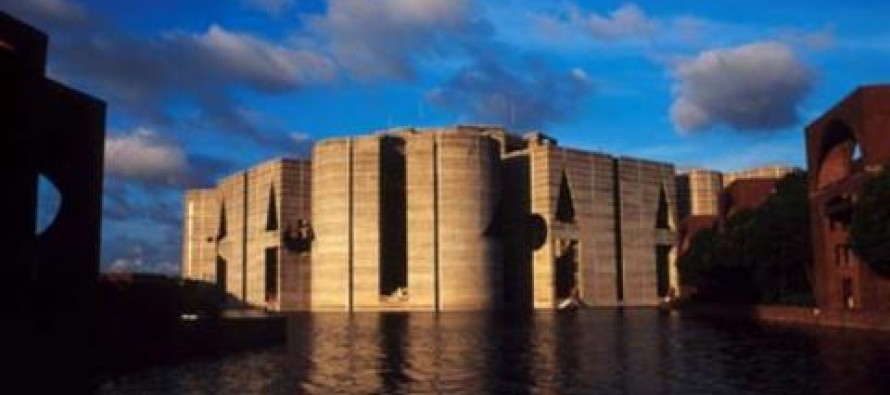Amendment of the Bangladesh Constitution

Following the August 29, 2005 High Court verdict that declared the fifth constitutional amendment illegal, the Appellate Division of the Supreme Court on February 2nd of this year upheld the HC verdict with “modifications” and “observations” and the judgment of the highest court of the land was released on 28th July 2010.
Given the above context, it is reported that Prime Minister Sheikh Hasina in a statement in the parliament on 21st July constituted a 15-member Special Parliamentary Committee under section 266 of the rules of procedure of parliament to examine the Constitution, propose necessary amendments and place them to the Parliament.
The first sitting of the Commiittee took place on 29th July. The mainstream opposition party BNP wants to join the committee on condition that the committee should have equal number of members from BNP at the Committee.
At the outset we have to acknowledge a reality that the Constitution has gone through amendments 14 times as of May 2004 and as a result the original 1972 Constitution has changed Some of the amendments are found to be necessary and some are totally against the spirit and objectives of the Constitution.
Therefore the Consitution to its original 1972 form cannot be restored because some of the amendments relate to the detention for alleged war criminals, declaration of emergency provisions and inclusion and exclusion of territory in terms of the 1974 Indo-Bangladesh Land Boundary Agreement shall remain (1st , 2nd and 3rd amendments of the Constitution dated 15th July, 1973, 22nd September 1973 and 28th November 1974).
The War of Liberation was fought on the basis of Bengali nationalism and non-communalism and the 1972 Bangladesh Constution adopted on 4th November 1972 is founded on the spirit of the Liberation War.
Based on the doctrine of separation of powers, the Constitution provides a representative democracy in which government runs the administration, parliament enacts laws and judiciary interprets the laws. Each organ has its own limits of power enumerated in the Constitution and this fundamental law is the bedrock of constitutional democracy of the People’s Republic of Bangladesh.
The 39- year of constitutional rule has a chequered history and received severe setbacks-one in 1975 and again in 1982- and has demonstrated pitfalls and deficits of the provisions of the Constitution.
Another issue is the provisions of the Constitution have assumed certain expected assumptions and conduct from office holders of the Republic. Many of the provisions speak of enactment of necessary laws and some of the laws have not yet been enacted. Consequently the spirit and objectives of the Constitution have not fully been met.
Furthermore, those expectations have not been fulfilled because of literal interpretation of provisions of the Constitution without taking into account the spirit and objectives of the Constitution as a whole.
The interpretation of a provision of the Constitution cannot made in isolation because the constitutional document is a text in which each part (the Constitution contains 11 parts) is related to the other. In a sense, the whole text is organic in character. If there is any change in one part without corresponding changes in other parts, the whole text become disjointed.
It is suggested that the Committeee may consider the following list of issues that is only indicative:
• Should there be a care-taker government, given the experience of the last one which governed not three months but almost two years? If it exists, how to make its tenure fixed within a specified time-limit and accountable?
• Should the Parliament have more than 300 elected members in a country with 160 million population?
• Should be there a combination of first-past-post system (existing system) and proportional representation be introduced for electing members of parliament?
• Should there be certain number of women candidates for MPs from each party to be elected in parliament?
• Should the duration of the Parliament be for three years?
• Should boycott of parliament of elected members be employed as a political tool? If so should they lose memberships?
• Should the powers of the President and the Prime Minister operate as checks and balances on each other?
• Should the Speaker, after being elected, cease to have any affiliation of any political party, for nuetrality?
• Should the tenure of the Prime Minister be limited to two terms since the term of the President has been limited to two terms under Article 50(2) of the Constitution?
• Should all constitutional and other important posts are to be recommended for appointments by independent Commissions ?
• Should all state institutions have separate budgetary allocations from the government to exercise their functional independence?
• Should any amendment of the Constitution or any important national issue be put to people for referendum?.
• Should representatives of civil society and business sector be allowed to participate as non-voting members in parliamentary committees?
• Should any political party not gaining 5% of popular vote in the parliamentary election be denied representation in the parliament or not recognised as a registered lawful political party?
• Should there be a penalty for leaders who establish extra-constitutional governments ? (Agentinian constitution considered declaration of martial as “treason”)
We are fortunate that many founding framers of the original 1972 Constitution are alive today and they know what their objective were at the time and what are the controversial elements that later intruded in the Constitution and distorted the democratic principles which are rooted in the spirit of Liberation War.
The task entrusted to the Special Committee is a national one and onerous too. It should not be considered from the point of view of party interests. The Committee may invite informed section of public, members of civil society and constitutional experts to contribute their inputs to them in an open, non-partisan and engaged discussion Let there be a new beginning of reinvigorated democracy in Bangladesh.
By Barrister Harun ur Rashid
Former Bangladesh Ambassador to the UN, Geneva.


